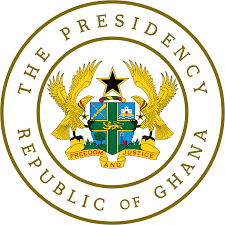Ghana’s Economic Transformation Gains Momentum With UN Support

Ghana’s economy is undergoing a period of significant transformation, marked by recovery from recent financial challenges and new momentum in reforms aimed at inclusive growth. The United Nations Country Team (UNCT) has played a central role, providing technical support, policy guidance, and targeted interventions in line with the Sustainable Development Goals (SDGs).
The partnership between Ghana and the UN is not new. It dates back to the late 1950s, beginning with support for civil service reforms and, by 1967, feasibility studies for the country’s north-south trunk roads that boosted trade and food security. Over the years, the collaboration has broadened to include health, education, governance, youth empowerment, and climate resilience.
From Crisis to Recovery
In 2022, Ghana’s economy was strained by high inflation, rising debt, and soaring living costs. The UNCT responded with measures that stabilised livelihoods, including the distribution of climate-smart seeds and inputs, the introduction of digital extension services, and support for smallholder farmers to cut post-harvest losses and increase yields.
New Phase of Transformation
The launch of the UN Sustainable Development Cooperation Framework (2023-2025) signalled a shift toward policy-level engagement and integrated programming, backed by a $500 million funding plan. The framework is anchored on three priorities: inclusive economic transformation, equitable social services, and peace and security.
So far, nearly 27,000 micro, small, and medium enterprises (MSMEs) have benefited from productivity-enhancing support, while 28,000 women-led businesses have reported stronger performance. More than 2,100 enterprises have adopted sustainable practices. Youth entrepreneurship and climate-focused innovation are also on the rise through initiatives such as the Ghana Smart SDG Cities Programme and Diaspora for Climate Action.
Signs of Growth
By the third quarter of 2024, Ghana’s economy recorded a 7.2 per cent growth rate–the highest in six years. UN-backed initiatives contributed directly to this rebound. Over 1,000 rural businesses were established, more than two-thirds of them women-owned. More than 7,000 MSMEs formalised operations, nearly 1,000 accessed matching grants worth $650,000, and close to 18,000 individuals received training in climate adaptation, legal frameworks, and sustainable agriculture.
In addition, the UN supported the rollout of Ghana’s National Genomic Surveillance Strategy (2024-2028), aimed at improving laboratories, data management, and skills to better track diseases and strengthen the country’s readiness for future health threats, the $1.7 billion Presidential Compact on Water, Sanitation and Hygiene (WASH), and the long-awaited passage of the Affirmative Action Bill, which broke a 13-year legislative deadlock on gender equality.
Shaping the Future
The UN’s approach in Ghana has been guided by six strategic shifts, including strengthening national capacity, limiting direct service delivery to emergencies, promoting evidence-based policy, and fostering agile, coordinated action. These adjustments have helped deliver more targeted support to vulnerable communities.
Looking ahead, Ghana is positioning itself for sustained, inclusive growth. The economy is projected to expand by four per cent in 2025, with inflation expected to ease to 11.9 per cent. Government priorities include agriculture, agro-industrialisation, manufacturing, and job creation, underpinned by the 24-hour economy initiative. Structural reforms in energy and cocoa, alongside stronger MSME ecosystems and value-added production, are expected to drive diversification and resilience.
For both Ghana and the UN, the focus remains clear: advancing an economy that delivers opportunity, resilience, and sustainable development for all, while ensuring a healthy environment is preserved for present and future generations.
By UN GHANA



